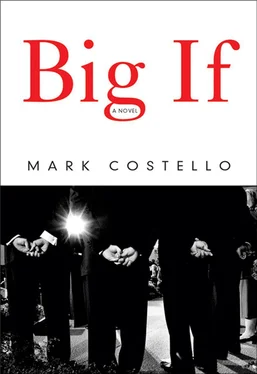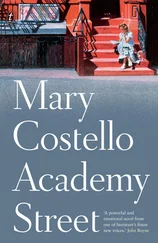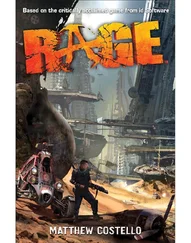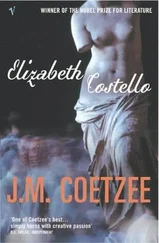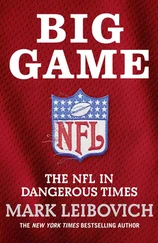Tashmo liked to interview the anti-nukers. He considered them hippies and perhaps they were. He offered them cigarettes, went easy on the frisks, gave them exciting jeep rides to the admin shack. He admired hippies, the whole Woodstock thing. They said that Vietnam was bad — he had seen it, and agreed. They advocated free love in the mud — he hadn’t seen it, but he wanted to. But the hippies he met under Carter were a dreary, worried group. He asked them how often they got laid, as hippies, in an average day, sincerely curious, but they could only talk about Three Mile Island, rads and rems and cataclysmic heat-exchanger failures.
Anita was a hippie, a suburban Buddhist, and she vacuumed in the buff. He saw her twice a week, stopping by for yogurt and a blowjob when Carter was at camp. Sex with her was exercise and, she said, a brief communion with the honesty of bodies. She grew bean sprouts in the basement, quoted Joni Mitchell, and wouldn’t let Tashmo smoke in the house even if he promised to blow it out the window. There was always a tension with Anita. The tension made it sexy, their little tug-of-war. Tashmo loved her clothes, her jerkins and her moccasins, and secretly he wanted to undress her partially and do the deed that way, but she was always in a rush for total honesty.
“It’s all wrapped up together,” Tashmo mused one day as she went down on him. “If we didn’t have clothes, being naked wouldn’t mean too much.”
She shrieked in his lap.
He said, “What’s the problem down there?”
“Your cock,” she gagged. “It, it — it tastes almost like the smell of Deep Woods Off.”
Tashmo said, “Oh that.”
He explained about the deer tick infestation at Camp David, how the agents smeared themselves in bug repellent, how it got from his hands to his manhood when he jerked off in the woods, and how he thought of her, jerking off alone. He thought she might be flattered by this honest revelation, but no dice. She made him take a shower with the soap she cooked at home.
He came back with a towel and described his driveway fantasy, Anita kneeling in a buckskin shift, holding the ample dairy platter. He was hoping for a little role-playing, but Anita was aghast. She said he was describing the Land O Lakes logo-woman, the box the butter comes in, the ethnocentric squaw. She strode off naked to the fridge, returning with a box of Land O Lakes. Sure enough, there she was, glowing on the package, his sexual ideal, a Pochahontan princess, offering him butter on her knees.
Things were never right with Anita after that, but he didn’t let it get him down. Suburbia was full of wives — wives like lawns, beautiful and useless and tended by their husbands once a week. Upper P.G. County was a civil service bedroom. The husbands in his town were civil service lifers, like the EPA ecologist, or Tashmo and his Secret Service buds, or like Tashmo’s neighbor, Bo Gould, who could sing all seven verses of the Fannie Mae fight song. The wives were mostly ex — flower children, transitioning to something else, like Canadian Anita with her orange Karmann Ghia, her well-thumbed Kama Sutra , and her closet full of suede.
There was something in the air back then, Carter winding down, a funky sort of hope, like they were on the verge of a great discovery, and it made him horny, driving past the lawns, buying milk and fudgsicles at the supermarket, women pushing shopping carts in tennis dresses. He followed them for aisles. Shopping made him horny. Working made him horny. Breakfast made him horny — reaching for the Land O Lakes, he spread the melting squaw. Betty Crocker in the flour — what would that be like? Fishy Mrs. Paul, Aunt Jemima dripping syrup, the ripe-tomato Contadina wench. These vestals of the Pik’N’Save, always feeding others, but what about their needs?
He didn’t jerk off in the supermarket. No, he was strong. He waited till he was in the car. Afterwards, he zipped his dick away, wiped his hands on a moist towelette, and had the best smoke of the afternoon, slouched behind the wheel, watching women in tennis dresses return their carts, unloaded, to the automatic doors, or leaving them to drift on wheels across the parking lot.
America. Driving home from Camp David, Tashmo passed the subdivisions speading over hills, except for one stretch of razor-ribboned fence, undeveloped blankness, several miles’ worth. He passed it coming back from camp and wondered why this square of forest stood untouched as every hill around it sprouted homes. One night in the duty shack, he mentioned the blankness to Lloyd Felker. They were watching Johnny Carson and the heat-screen monitors, both of which were pretty dull that night. Felker said the thing you couldn’t see behind the trees, the undeveloped heart of P.G. County, was the black budget at Fort Meade, the National Security Agency.
Tashmo said, “The spy guys?”
“Bet your ass,” said Felker. “They have a fleet of satellites, biggest mainframe ever built. They can listen to any conversation in the world. They make us look pitiful.”
Tashmo later realized that many husbands in his town were commuting to black budgets. He learned to spot them, off-duty at the dump, at his daughters’ school plays, or at Generoso’s on Inspection Saturday. The spies he knew were bearded, brainy, nervous men, good fathers and bad drivers. They would never say exactly what they did or where they did it. They always lived civilian-side cover and Tashmo tortured them for sport.
He remembered the intermission at Mandy’s fourth-grade Thanksgiving pageant. Not a beer in sight and he found himself talking to a dad who said he worked for the FCC. Tashmo toyed with the man, asking intricate questions about spectrum auctions.
“Like what if, for example, I wanted my own band. What exactly are the steps that are involved?”
Shirl had made him go to the pageant. Mandy played a singing turkey and Tashmo wreaked his vengeance on this poor fake regulator.
The guy-who’s-not-a-spy tried to duck the question. He said, “I don’t work in that part of the shop. The Commission, as you know, is quite the little empire.”
“What part do you work in?” Tashmo asked.
“The other part.”
“What does your part do?”
“Pretty much nothing about spectrum auctions.”
Tashmo told his neighbor, Bo Gould, about the pageant dad, forced by his position to pretend to be a bureaucrat, when he was, in fact, a different kind of bureaucrat. They were drinking Sambuca shooters in the Goulds’ elaborate finished basement, playing with Bo’s HO train set.
Bo was smashed that night. He said, “Want to know what I really do?”
Tashmo said, “You work for Fannie Mae. You sing the fight song. Sing it for me, Bo.”
Bo sang a verse—
“ O Fannie Mae, O Fannie Mae
You spread the credit widely…”
Then he waved. “Fannie Mae is bullshit. It’s called cover, Tash. I don’t even know why they assigned me that one. I requested the President’s Council on Physical Fitness, but they said that cover was taken. I’m on the waiting list, in case a spot opens up. But my real job is listening from space. My specialty is France. I could be fired for telling you this. Hope nobody heard me.”
After Bo passed out, Tashmo wandered upstairs, taking one last beer from the fridge, making himself a quick burger with fried onions.
To the living room. How do spies live? Picture-window views of other picture windows. A recliner chair, brown leather. He’d always wanted one of these. Test it out, tilt it back. They look so comfortable, but how the fuck do you get up?
Sip the beer. Where’d I put that burger?
He pushed himself up. Bookshelves always tell a story. He read the spines by the streetlights, Principles of Radio, Birding on the Chesapeake , Michener, Uris, von Clausewitz, Jonathan Livingston Seagull . He stepped back from the books and felt the burger squishing underfoot. He peeled it from the carpet and took another bite as Leah Gould, Bo’s wife, padded down the stairs.
Читать дальше
